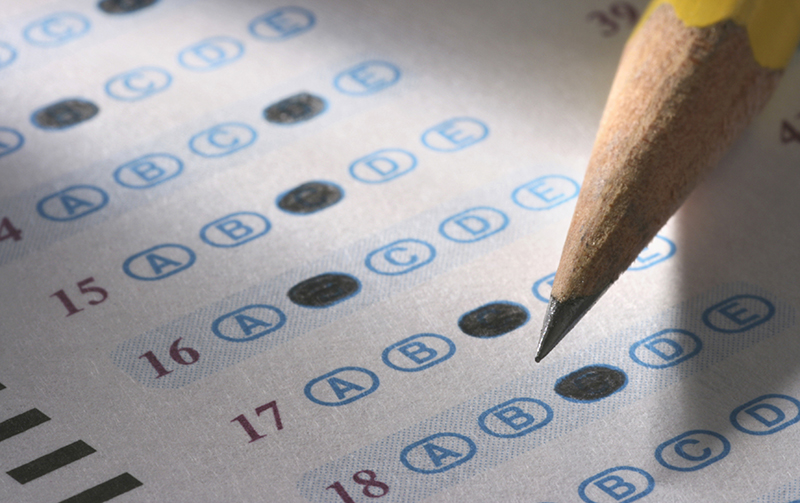How SJT Test Questions Measure Your Judgment and Professionalism

Strong 8k brings an ultra-HD IPTV experience to your living room and your pocket.
In the fast-paced and demanding world of healthcare, the ability to make sound decisions under pressure, communicate effectively, and act with professionalism is more important than ever—especially for junior doctors. One of the best ways this is assessed in the UK medical recruitment process is through the situational judgement test (SJT).
If you’re a medical student or a foundation doctor preparing for your UK Foundation Programme (UKFP) or other medical assessments, you’ve probably heard of the SJT test questions. But what exactly do they assess? And how can you make sure you're fully prepared?
This guide will break down everything you need to know in simple, clear language. From understanding the purpose of SJT to learning how to tackle the trickiest sjt practice questions, we’ll walk you through it all—step by step.
What Is a Situational Judgement Test?
A situational judgement test is a type of psychometric assessment used widely in medical recruitment to evaluate how candidates handle realistic workplace situations. In the UK, it’s a key component of the Foundation Programme Application System (FPAS), contributing significantly to a candidate’s overall application score.
Rather than testing medical knowledge directly, the SJT focuses on professional behaviors—such as teamwork, integrity, empathy, decision-making, and time management.
Why Is SJT Important for Junior Doctors?
For junior doctors, clinical competence goes hand-in-hand with interpersonal and ethical decision-making. The SJT helps assess:
- How you respond to pressure
- Your ability to prioritise effectively
- How you manage professional dilemmas
- Your understanding of NHS core values
Medical professionals face complex scenarios every day, and how they react can significantly affect patient outcomes and team dynamics. The situational judgement test acts as a standardized method to assess these soft skills fairly and consistently.
How SJT Test Questions Work
SJT test questions are typically multiple-choice and can be of two main types:
- Ranking Questions – You are asked to rank five responses from most appropriate to least appropriate based on a given scenario.
- Multiple-Choice Questions – You must choose three (or a specified number) of the most appropriate actions out of a list.
Each question is built around a short scenario involving a junior doctor in a realistic medical setting. The goal is to assess your judgment—not necessarily to find a single “correct” answer, but to evaluate the most professional and ethical course of action.
What Skills Are Measured by SJT?
Here are the core competencies evaluated by SJT test questions:
- Professionalism: Maintaining integrity, honesty, and confidentiality
- Teamwork: Collaborating effectively with colleagues and supporting others
- Empathy and Compassion: Showing understanding and kindness in patient care
- Decision Making: Using good judgment in complex or high-pressure situations
- Patient Safety: Acting in ways that minimise risk and protect patients
These are all essential qualities for junior doctors, as outlined in the General Medical Council (GMC) guidance and NHS values.
Common Mistakes to Avoid in the SJT
Many candidates lose marks not because of lack of knowledge, but due to misunderstanding the goal of the test. Avoid these pitfalls:
- Relying solely on clinical logic: These questions are not medical exams. Ethical and team-based reasoning is essential.
- Overthinking: Go with the most realistic, professional response—not what you think the “examiner” wants.
- Ignoring NHS values: Every question is grounded in the principles of the NHS constitution.
Tips to Tackle SJT Practice Questions Effectively
Getting better at sjt practice questions takes more than repetition—it requires reflection. Here’s how to improve:
- Familiarise yourself with GMC and NHS values: Use them as your moral compass.
- Read the scenario thoroughly: Understand who’s involved and what the dilemma is.
- Practice ranking responses: Even subtle differences can affect professionalism.
- Reflect on your answers: Review why one answer is better than another.
- Simulate timed conditions: This will help build both accuracy and speed.
With consistent practice, you’ll not only understand the types of questions you’ll face, but also grow more confident in your judgment.
How Mediword Supports Your SJT Preparation
At Mediword, we understand the pressure junior doctors face while preparing for the SJT. That’s why our resources are specifically designed to enhance your decision-making abilities through real-world medical scenarios, structured explanations, and expert-crafted sjt practice questions.
Our content is grounded in NHS values and updated regularly to reflect current clinical challenges—making your preparation practical, relevant, and confidence-building.
Whether you're targeting the UKFP or preparing for foundation year transitions, Mediword is here to guide you every step of the way.
FAQs (People Also Ask)
1. Is the SJT test hard for medical students?
It can be challenging—not because of clinical complexity, but because it assesses ethical reasoning and judgment. With proper practice and understanding of NHS values, it's absolutely manageable.
2. How can I improve my SJT ranking answers?
Review GMC guidance, reflect on feedback, and do structured sjt practice questions with explanations. Focus on professionalism, empathy, and patient safety.
3. Are all answers in the SJT equally correct?
No. Some responses are more appropriate than others. You’re assessed on how closely your judgment matches that of experienced professionals.
4. Do I need to memorise medical knowledge for the SJT?
No clinical knowledge is directly tested. Instead, it evaluates how you apply values and ethical principles in workplace dilemmas.
5. How many SJT test questions are on the exam?
The Foundation Programme SJT consists of 70 questions in total, to be completed in 2 hours and 20 minutes.
Conclusion
Understanding how SJT test questions measure your judgment is key to succeeding in the medical field. They don’t test how much you know—but how you behave under pressure, how you work in a team, and how ethically and professionally you act.
If you’re preparing for the UK Foundation Programme or another junior doctor pathway, remember that practicing situational judgement test scenarios isn’t just about passing an exam—it’s about building the mindset of a safe, compassionate, and effective doctor.
With support from platforms like Mediword, you can develop the insight and skills needed to face these challenges with clarity and confidence.
Note: IndiBlogHub features both user-submitted and editorial content. We do not verify third-party contributions. Read our Disclaimer and Privacy Policyfor details.







